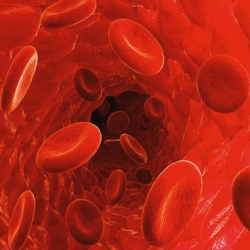
IBM Watson for Oncology uses the latest deep learning techniques to provide clinicians worldwide with evidence-based treatment plans. For many of Zhao’s patients – and countless others like them – Watson provides quite literally a lifeline. At least 40 hospitals in China have deployed IBM’s Watson since it became available last year.
Meanwhile, the use of AI technology has gone beyond identifying and evaluating cancer treatment options: AI doctors can read medical images, send health alerts and assist hospitals’ day-to-day operations.
In Beijing, an AI-powered robot named Xiaoqiao is working side-by-side with human receptionists. Programmed to communicate interactively, Xiaoqiao can greet visitors cheerfully, register them and help them find the right doctor.
Nearly 80 per cent of 5,000 respondents to a survey of medical workers, tech firms and investors this year by Chinese medical information portal HC3i said hospitals they had worked with either had deployed, were in the process of testing or planned to try AI technology. Four out of five said AI doctors had a future in China.
China is racing to challenge America’s global leadership in AI technology. Beijing recently said it planned breakthroughs by 2025 and lead the world in AI by 2030. Analysts said the Chinese government aims to use the domestic market to advance made-in-China AI technologies, as the country’s 1.3 billion people would be an ample source of the vast amounts of data needed for machine learning.
AI has many possible applications: Chinese leaders have highlighted those in health care, defence and education in particular.
This priority is driven in part by a medical manpower shortage. The World Health Organisation estimated that in 2015 there were only 1.5 physicians for every 1,000 people in China, compared with 2.5 in the US and 2.8 in Britain. China’s rapidly ageing population means the pressures on hospitals will only increase. And it is not only American tech firms that stand to benefit but their Chinese counterparts, too.
Beijing-based Huiyihuiying, for instance, said it has AI doctors capable of interpreting CT scans. It claims its programme can identify early indications of lung cancer almost as accurately as top Chinese doctors in less time – reading a CT scan and making diagnoses within seconds compared to five minutes needed by human doctors.
